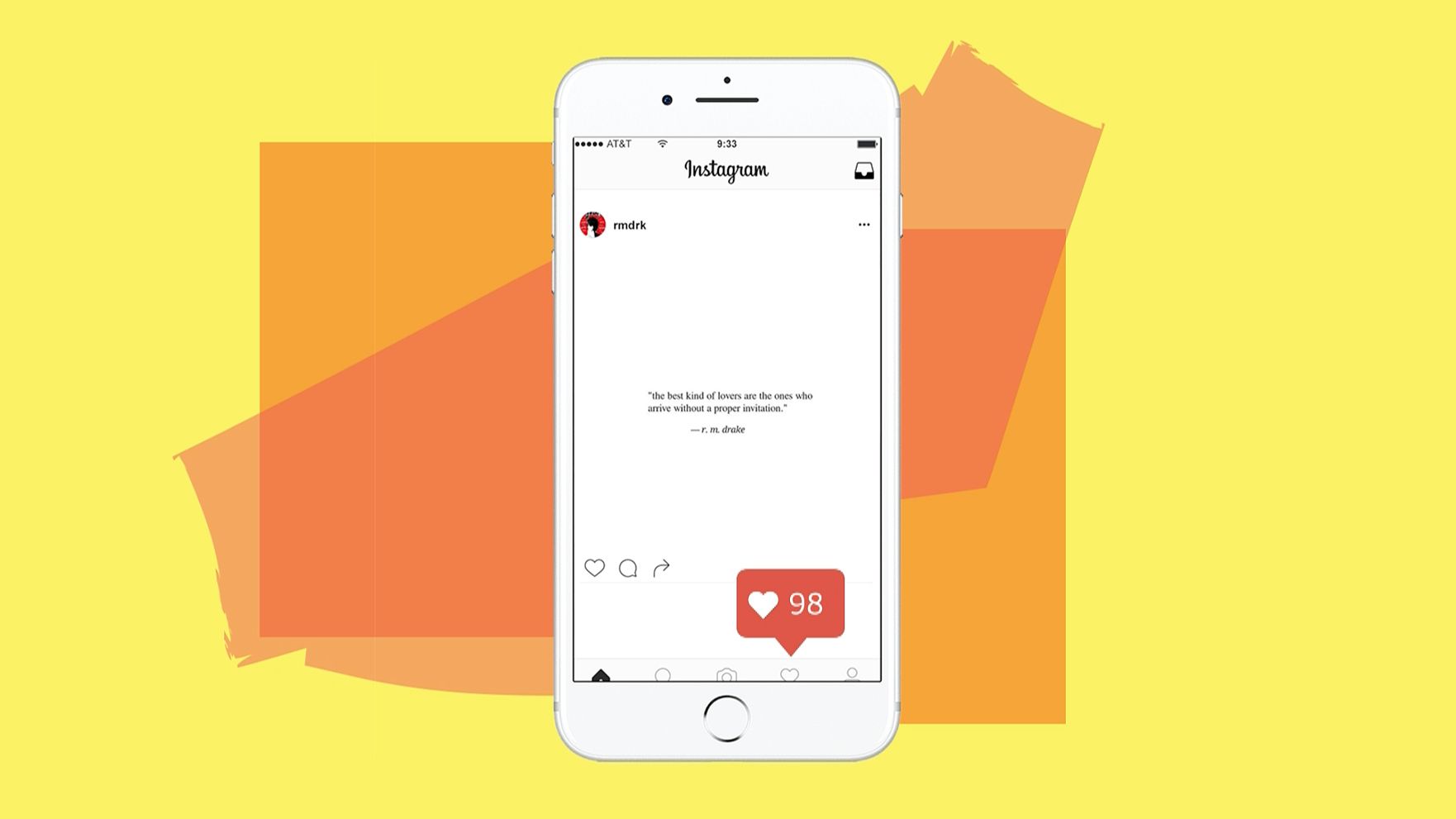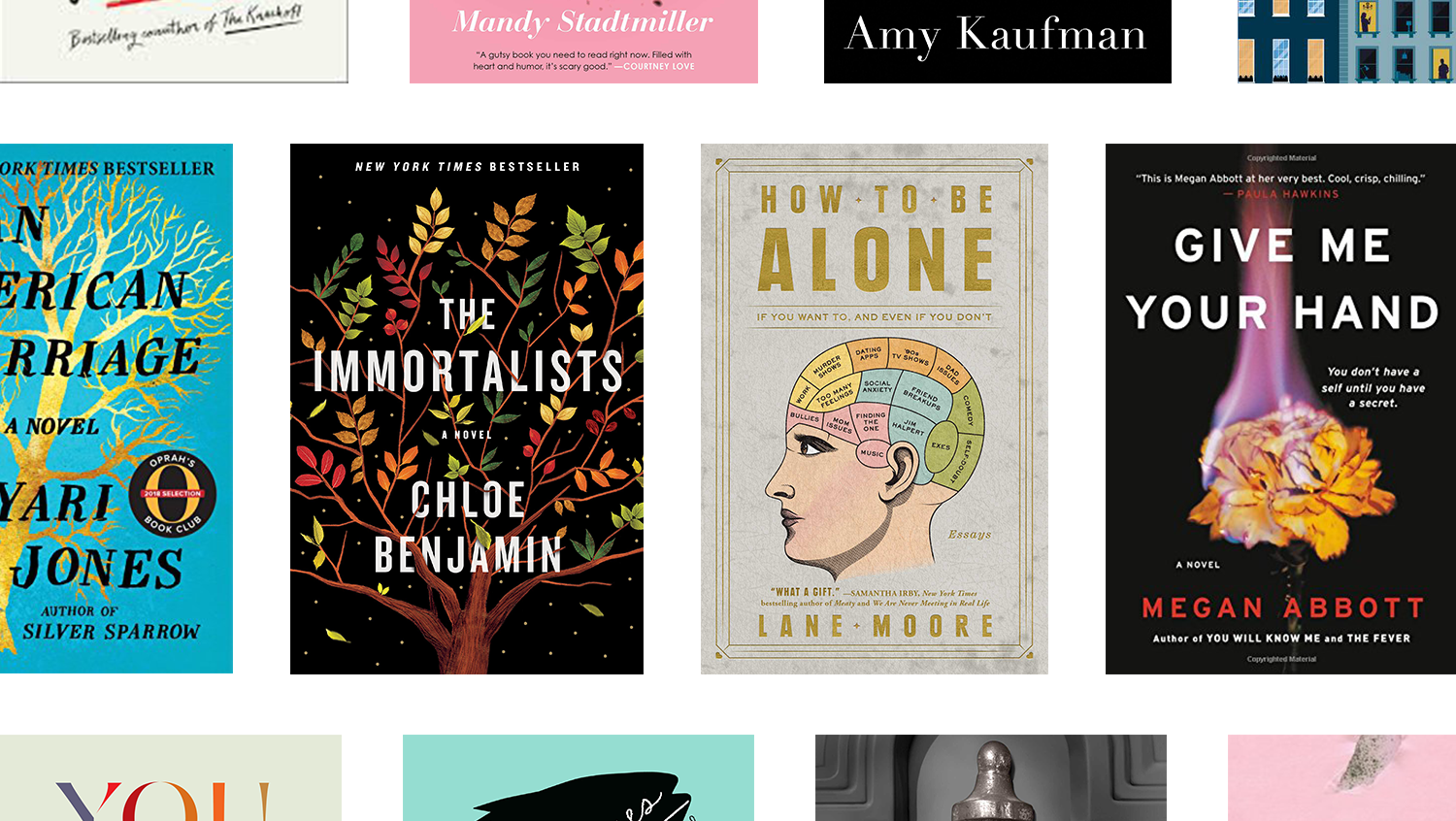Sadie Dupuis Is Proof That Poetry Never Went Away
The Speedy Ortiz frontwoman released her first book of poems, Mouthguard, this month. But don’t call it a comeback.
If you’ve read a culture story lately—or if you’re just on social media—then you’ve likely heard the news: Poems are making a comeback! According to PBS, 2018 saw a 15-year high in American adults reading poetry, and credit is at least partially due to Instagram, of all places. Thanks to poignant and often shareable work from artists that run the gamut, like Rupi Kaur (whose Instagram-friendly poems have also garnered some backlash), Maggie Smith, and the Astro Poets, the genre is finding its way into the hearts of a generation that wasn’t content to end the conversation in English class.
And now we can add an edgy and exciting new name to that modern canon: Sadie Dupuis, whose first book of poetry, Mouthguard, landed November 1. Though she might be best known as the frontwoman of beloved indie rock band Speedy Ortiz—fresh off a tour supporting Liz Phair—or her solo project Sad13, Dupuis has a long history with poetry. She wrote most of the poems in this collection between 2011 and 2014, while she was attending the poetry program UMass Amherst (though she initially attended MIT for math and music). In fact, though Speedy Ortiz is reaching indie stalwart status now, Dupuis, 30, wrote a lot of Mouthguard before the band had even taken off.
As a result, the poems in her collection are nostalgic and familiar, to Dupuis and to the reader. Her publishing house, Gramma Press, describes the works as “emerg[ing] from the place where known experience and the unknown collide; a borderline we all cross on the way to becoming ourselves.” They explore themes of love and self-creation, of body horror and fragility. They’ve got a wicked sense of humor, but also a melancholy manifested in the sense of being unable to go anywhere except down the path you’re already on. Take, for instance, “Ankle Bleeding Makes the Trail,” in which Dupuis writes:
In a lot of ways, it’s a more challenging poetry collection than what typically goes viral on social media. But because it encompasses so much, the poems in Mouthguard get under your skin and stay there. Sadie Dupuis talked to Marie Claire about her collection, the artists she loves, and why poetry is popular again—but don’t call it a comeback.
On why she decided to revisit and release this collection now
"I finished it in 2014 and I was proud of it. I love this book. I really am proud of the time I put into it and the work that's there, but I was running at...I felt like I had two full-time jobs for a while between this and Speedy Ortiz. I just filled up all of my time that wasn't in school with band stuff.
Maybe a year and a half ago, I was like, Man, I really want this book out. Other friends I finished the [poetry] program with had published books and I buy them and I'm so psyched for those people. I'll see poems in these books that I read in workshop and it's really gratifying to see the work that they've put in to having these books come out. But I kinda felt a little jealous. I was like, My book's good, too. Why haven't put in any effort to see this released? I reached out to a friend who has published a number of other friends’ books, just really beautiful books, and said, like, 'Hey, would you want to work on this with me?' And she did. The work started from there."
RELATED STORY

On whether she gets nervous being so personal in her work
"I've never felt too insecure about anything that's put into these poems, because it wasn't like someone could read them and know very specifically any detail about my life that I wouldn't have been comfortable sharing. Also, my tendency is really to overshare about my personal life. So in a way, these poems are nice, because while I know what feelings sparked them, I'm not coming up to read at a bookstore or something and saying, 'Here's the specific way that this person in my life let me down.' It's sort of this mystical, medieval language."
Get exclusive access to fashion and beauty trends, hot-off-the-press celebrity news, and more.
On how poetry differs from songwriting
"If anything, because there's music and there's meter and whatever to Speedy Ortiz, it feels a little easier to put in something that's very brutally autobiographical that would feel, like, uncomfortable just to say out loud. If you put it to, like, a goofy melody, I dunno, that works as a juxtaposition of its own."
On Rupi Kaur’s popularity and the requisite backlash
"I really like her work and I guess I have seen backlash, but people will do that to anyone who gets popular out of seemingly nowhere. I'm happy that poetry's being more widely read. I feel like it's funny to see memes that feature poets. I saw a tweet that went viral that was, 'Rupi Kaur is the Drake of poetry' or something. But I'm happy for more people to be in conversation with poetry, because it just means more people are gonna know what the fuck I'm talking about when I tell them to read, like, Ariana Reines or something like that."
On the poets she’s reading
"I really like Melissa Lozada-Oliva. She put out a book on Button last year called peluda. I really like a lot of the poets that are released through Button Poetry. Like, Olivia Gatwood I think is really great. I mentioned Dorothea Lasky, but if I were to say, 'If somebody likes Mouthguard, what should they look to,' I probably have to recommend the people I was reading around the time I wrote it, and she's for sure one of them. C.A. Conrad is for sure one of them. I really like pretty much anything that Wave Books publishes. Those are some big ones for me personally. Maggie Nelson is a perennial fave and I think a pretty well-known one as well."
On what's next
"I'm really anticipating having this be out in a couple of days so I can sort of return to writing for a second book. I'm the same way with music as well: Whenever I have a record that's finished but it's not out, I really can't write anything. I don't want to start working on new ideas or scenes or sounds that will then have me uninspired about the thing that hasn't been released, if that makes sense.
I'm really just looking forward to having a clean slate. I'm starting to write toward something new, which I think will be very different from the Mouthguard stuff. Even my writing and songwriting has changed so much, I feel like I really couldn't have written poems this personally-oriented now. So much of the work I've done the past few years as a songwriter, if I am writing about the problems in my life, they're like collective struggles rather than inward-looking stuff. It's cool to have this book coming out and know that I probably couldn't replicate it. And I'm really, really excited to work on the next thing."
You can pick up a copy of Mouthguard, out now, here.
RELATED STORY

Cady has been a writer and editor in Brooklyn for about 10 years. While her earlier career focused primarily on culture and music, her stories—both those she edited and those she wrote—over the last few years have tended to focus on environmentalism, reproductive rights, and feminist issues. She primarily contributes as a freelancer journalist on these subjects while pursuing her degrees. She held staff positions working in both print and online media, at Rolling Stone and Newsweek, and continued this work as a senior editor, first at Glamour until 2018, and then at Marie Claire magazine. She received her Master's in Environmental Conservation Education at New York University in 2021, and is now working toward her JF and Environmental Law Certificate at Elisabeth Haub School of Law in White Plains.